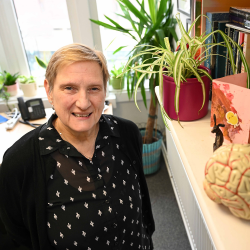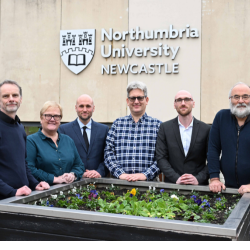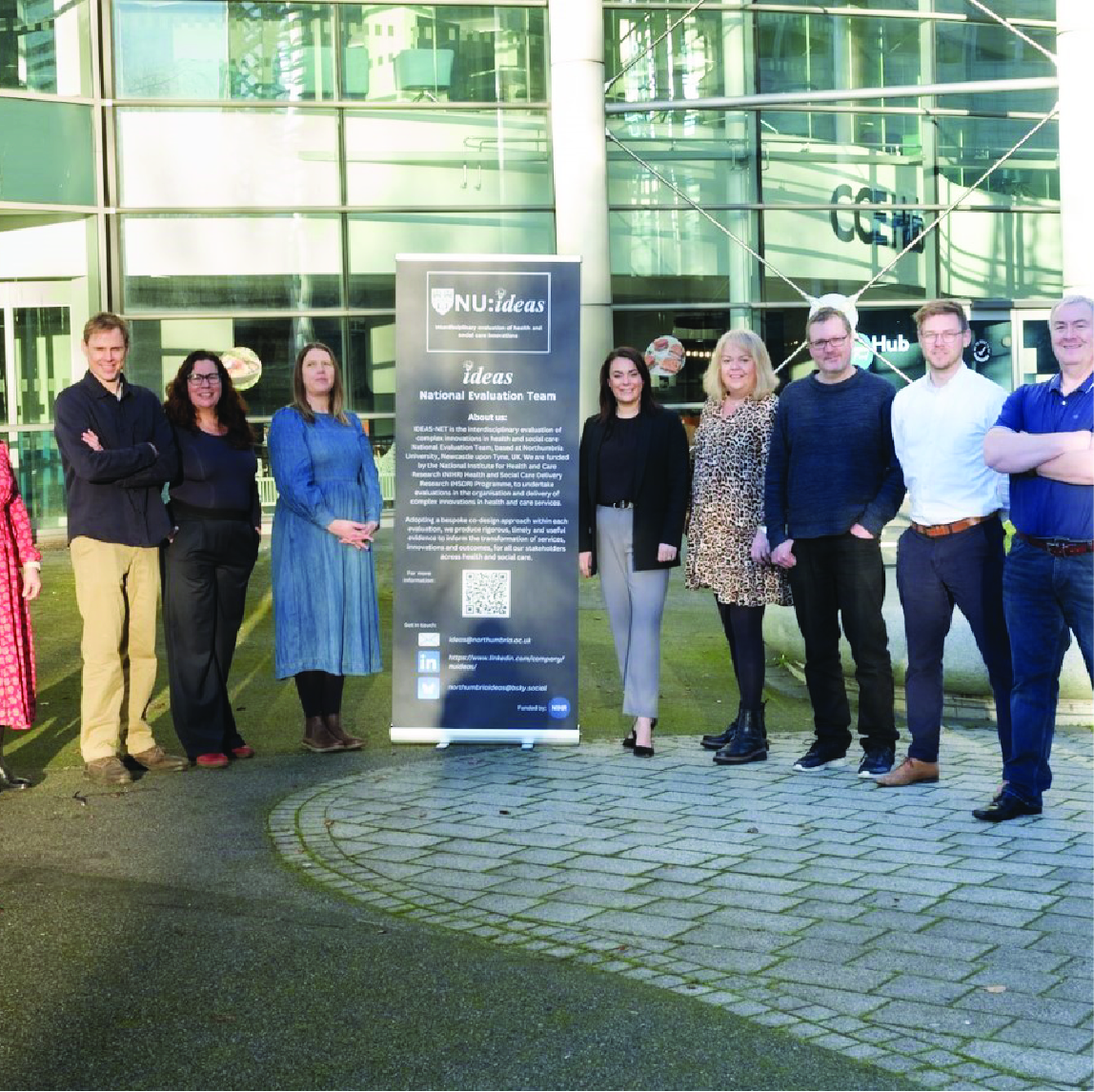-
Study
-
Quick Links
- Course Search
- Unlock Your Potential
- Still time to Apply
- Higher and Degree Apprenticeships
- Continuing Professional Development
- Still time to apply
-
Undergraduate
- Course Search
- Application Guides
- UCAS Exhibitions
- Foundation Years
- Fees and Funding
- School & College Outreach
- Information for Parents
-
Postgraduate
- Course Search
- Application Guide
- Postgraduate Research Degrees
- Flexible Learning
- Fees and Funding
- Change Direction
- Register your Interest
-
Student Life
- Students' Union
- The Hub - Student Blog
- Accommodation
- Northumbria Sport
- Support for Students
-
Experience Northumbria
- Open Days & Events
- Virtual Tours
- Campus Tours
- Life in Newcastle
-
-
International
International
Northumbria’s global footprint touches every continent across the world, through our global partnerships across 17 institutions in 10 countries, to our 277,000 strong alumni community and 150 recruitment partners – we prepare our students for the challenges of tomorrow. Discover more about how to join Northumbria’s global family or our partnerships.
View our Global Footprint-
Quick Links
- Course Search
- Undergraduate Study
- Postgraduate Study
- Information for Parents
- London Campus
- Northumbria Pathway
- Sign up for Information
-
International Students
- Information for Students
- International Events
- Application Guide
- Entry Requirements and Education Country Agents
- Global Offices
- English Requirements
- English Language Centre
- International student support
-
International Fees and Funding
- International Undergraduate Fees
- International Undergraduate Funding
- International Masters Fees
- International Masters Funding
- International Postgraduate Research Fees
- International Postgraduate Research Funding
-
International Partners
- Agent and Representative Network
- Global Partnerships
- Global Community
-
International Mobility
- Information for Northumbria Students
- Information for Incoming Exchange Students
-
-
Business
Business
The world is changing faster than ever before. The future is there to be won by organisations who find ways to turn today's possibilities into tomorrows competitive edge. In a connected world, collaboration can be the key to success.
More on our Business Services -
Research
Research
Northumbria is a research-rich, business-focused, professional university with a global reputation for academic quality. We conduct ground-breaking research that is responsive to the science & technology, health & well being, economic and social and arts & cultural needs for the communities
Discover more about our Research -
About Us
-
About Northumbria
- Our Strategy
- Our Staff
- Place and Partnerships
- Leadership & Governance
- Academic Departments
- University Services
- History of Northumbria
- Contact us
- Online Shop
-
-
Alumni
Alumni
Northumbria University is renowned for the calibre of its business-ready graduates. Our alumni network has over 246,000 graduates based in 178 countries worldwide in a range of sectors, our alumni are making a real impact on the world.
Our Alumni - Work For Us
What will I learn on this module?
Physicists are increasingly able to exploit quantum mechanical behaviour in new optoelectronic devices that will have a profound impact on our lives. These devices offer unprecedented performance in terms of speed and efficiency. The student will develop knowledge of how these characteristics stem from design at the atomic scale and of the challenges associated with scaling-up for practical applications such as sustainable energy and quantum computing.
Background Quantum Theory
Review of quantum mechanical concepts. Density of states function in one, two and three dimensions. Fermi-Dirac occupation function. Electron gas and the Fermi surface. Band theory of semiconductors and doping. Band structure of important semiconductors.
Low-dimensional Semiconductors
Energy and length scales. Fabrication techniques: top down and bottom up. High electron mobility transistor and the two-dimensional electron gas. Quantum Hall effect. Quantum wires and quantised conductance. Semiconductor quantum dots. Measurement methods for quantum devices.
Quantum Devices
Quantum computing, Quantum cryptography, Single photon and entangled photon emitters, Single electron transistor, Semiconductor quantum dot laser, Quantum cascade laser, Optical cavities, Third generation photovoltaics and quantum efficiency, Light emitting diodes and solid-state lighting, Resonant tunnelling diode, Future opportunities for quantum devices: properties of graphene and graphene-based devices; Scaling up nanotechnology, Sustainability and cost.
How will I learn on this module?
A wide range of learning and teaching approaches are used in this module. Lectures are used to allow the students to initially re-acquaint with fundamental concepts in quantum mechanics and condensed matter before the introduction of reduced dimensionality and the implications for practical devices. Seminars support this process through worked examples and virtual demonstrations using multimedia resources. In particular, technology enhanced learning opportunities involve for example, software to visualise three-dimensional plane waves and eigenfunctions of low-dimensional systems. Students gain greater autonomy and independence through this module and are directed to seminal references which provide a basis for further student-led exploration of the state-of-the-art. This process helps students to develop critical thinking skills for example forming judgements on the credibility of a reference. It also provides valuable sector knowledge thereby increasing students’ employability.
Summative assessment is composed of a coursework assignment, which includes an in-person individual viva of 15 mins(worth 70% of the module mark) and a group presentation of 20 minutes duration (worth 30% of the module mark). Formative assessment is used regularly throughout the module and includes tests and informal quizzes.
How will I be supported academically on this module?
In addition to direct contact with the module team during lectures and seminars, students are encouraged to develop their curiosity by making direct contact with the module team either via email or the open-door policy operated throughout the programme. Students will also be regularly referred to supporting resources including relevant texts and multimedia relevant to the module. References to these resources will be made available through the e-learning portal and in lectures and seminars.
What will I be expected to read on this module?
All modules at Northumbria include a range of reading materials that students are expected to engage with. Online reading lists (provided after enrolment) give you access to your reading material for your modules. The Library works in partnership with your module tutors to ensure you have access to the material that you need.
What will I be expected to achieve?
Knowledge & Understanding:
1. Analyse advanced concepts and theory in quantum mechanics and apply this to problems at a conceptual and mathematical level.
2. Critically evaluate the physics behind the nanometre scale quantum features at the device and system level.
Intellectual / Professional skills & abilities:
3. Analyse the physics of low-dimensional systems
4. Critically evaluate fabrication and measurement techniques associated with nanometre scale devices and systems.
Personal Values Attributes (Global / Cultural awareness, Ethics, Curiosity) (PVA):
5. Effectively and concisely communicate the physics of complex quantum devices, develop enhanced communication and interpersonal skills
How will I be assessed?
SUMMATIVE
1. Coursework (70%) – 1, 3, 5
2. Group Presentation(30%) – 2, 4, 5
FORMATIVE
1. Seminar problems 1, 2, 3, 4, 5
2. Informal quizzes 1, 2, 3, 4, 5
Feedback is provided to students individually and in a plenary format both written and verbally to help students improve and promote dialogue around the assessment.
Pre-requisite(s)
N/A
Co-requisite(s)
N/A
Module abstract
As electronic devices continue to shrink, we are increasingly able to exploit quantum behaviour for significant improvements in performance and sustainability. In this module you will learn about state-of-the-art optoelectronic devices from the underpinning quantum mechanics to fabrication techniques at the nanometre scale. The module draws heavily from state-of-the-art research for example in low-dimensional structures such as quantum dots, wires and atomically thin devices. Through the module, problems and examples are used to illustrate both the fundamental and applied nature of the subject. The assessment builds on this through a challenging final coursework assignment. The skills and knowledge gained through this module place you in an excellent position to capitalise on employment opportunities in new markets enabled by nanomaterials and quantum phenomena, or to progress your academic career as a professional physicist.
Course info
UCAS Code F3F5
Credits 20
Level of Study Undergraduate
Mode of Study 3 years Full Time or 4 years with a placement (sandwich)/study abroad
Department Mathematics, Physics and Electrical Engineering
Location City Campus, Northumbria University
City Newcastle
Start September 2025 or September 2026
All information is accurate at the time of sharing.
Full time Courses are primarily delivered via on-campus face to face learning but could include elements of online learning. Most courses run as planned and as promoted on our website and via our marketing materials, but if there are any substantial changes (as determined by the Competition and Markets Authority) to a course or there is the potential that course may be withdrawn, we will notify all affected applicants as soon as possible with advice and guidance regarding their options. It is also important to be aware that optional modules listed on course pages may be subject to change depending on uptake numbers each year.
Contact time is subject to increase or decrease in line with possible restrictions imposed by the government or the University in the interest of maintaining the health and safety and wellbeing of students, staff, and visitors if this is deemed necessary in future.
Useful Links
Find out about our distinctive approach at
www.northumbria.ac.uk/exp
Admissions Terms and Conditions
northumbria.ac.uk/terms
Fees and Funding
northumbria.ac.uk/fees
Admissions Policy
northumbria.ac.uk/adpolicy
Admissions Complaints Policy
northumbria.ac.uk/complaints









